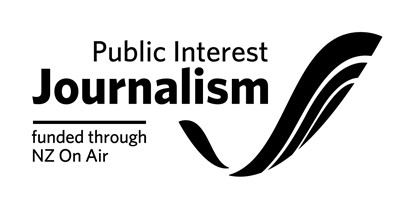Ask any teenager, and they’ll tell you a driver’s licence is a big deal.
For some, it is almost a rite of passage. For others, it is a massive challenge.
At 27, Grace Lee is embracing the freedom that so many people take for granted.
“I’ve always been independent, regardless of having my licence, but having a licence and a car has enhanced my independence to another level where it feels great not having to rely on my family or friends for rides all the time.”
Grace was born four months premature and was diagnosed with Spastic Diplegia which is one of many forms of Cerebral Palsy.
“Thankfully, because my Cerebral Palsy is moderate, I get to live quite independently and comfortably but I still find myself having to work around a few things in terms of accessibility - like not being able to stand for long periods of time or walking long distances.”

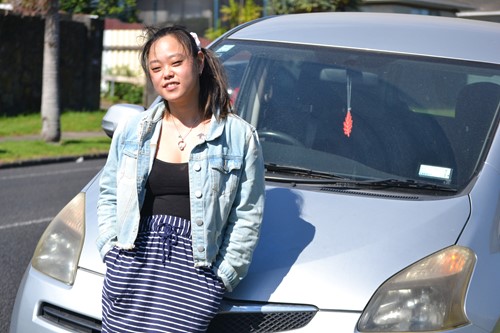
Photo: Melanie Louden/Cerebral Palsy Society
Grace has never been one to shy away from a challenge - she sailed to Fiji on an accessible ship - but getting a driver’s licence hasn’t been easy.
“This process was challenging at first because, when you get your learners, there is no `after care’ especially if you have a disability. For people without barriers, it is as simple as `ok, you can start practising how to drive now’ but for people with disabilities, it’s not as straightforward and we don’t all fit in one box in terms of `needs’ both physically and the practical aspects of driving.”
Grace’s first attempt to get her licence ended in failure.
“I failed the first time and stopped trying for a couple of years.”
“I failed because I wasn’t ready. So, when it came to my second chance, I wasn’t sure if I was made to drive.”

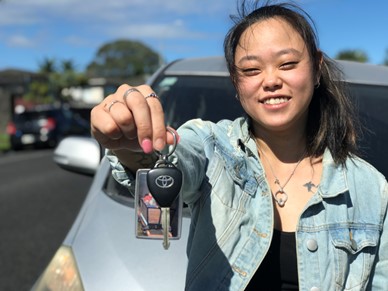
Photo: Melanie Louden/Cerebral Palsy Society
Thankfully, with financial assistance from the Cerebral Palsy Society of New Zealand, in the form of an Individual Grant, Grace was eventually able to retake the test.
“I definitely had doubts…”
“But I overcame it because I had a good driving instructor and supportive friends and family who made me realise I just need to practise more, rebuild my confidence and keep going.”
Grace believes many disabled people are missing out because they don’t know where to go and who to ask for help. An application to the Lottery Grants Board helped her secure her first car and get it modified with hand controls.
“I drive with my hands instead of feet, and everything is reachable within my fingertips.”
Passing her restricted licence was a happy day.
“I was in shock, obviously, because I initially thought I had failed again, but when the instructor said I passed, I was in disbelief even though I got through the test without too many issues.’

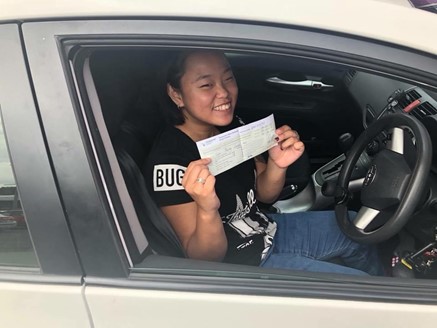
THE "getDriving" PROGRAM
Grace's story is all too familiar to the Cerebral Palsy Society.
I spoke to Renata Kotua - Member Support and Programmes Coordinator for the Cerebral Palsy Society of New Zealand - who is focused on improving outcomes for youth and young adults with Cerebral Palsy.
“I spent the first 30 years of my life ignoring my disability, trying to be as normal as possible and I refused to engage with disability support. With maturity has come genuine acceptance and I have made peace with my CP.”
Renata Kotua knows from personal experience how life-changing it can be to get a drivers’ licence.
“Before I could drive my life revolved around bus timetables. I had no spontaneity in life. Couldn’t get out on a whim and my world was so much smaller.”
“I went through so many shoes walking everywhere and once I was driving I had so much time. There was no waiting at bus stops and outings that used to take two hours were cut down to 30-40 minutes.”
It was her own learning-to-drive journey that made Renata Kotua want to make the process more accessible to others with Cerebral Palsy, largely because of how much easier life became once she’d mastered driving and gained her Restricted Drivers’ License.
“Speciality-disabled lessons cost more than standard driving lessons cost our able-bodied peers. Many young people either supplement professional lessons with practice in the parents/family vehicle. Some don’t have professional lessons at all and just learn from Mum/Dad/Siblings etc - if you are learning to drive a modified vehicle there is ZERO opportunity to practise outside of professional instruction.”
“If you have a disability it can take longer to master physical skills or to overcome something like a startle reflex or portal issues, or differences in visual perception, for example so not only are the lessons more expensive, but we tend to need more than our able-bodied peers do to master the same skill. The higher financial input required by someone with CP when compared to our able-bodied peers is why I wanted to make the getDriving program.”
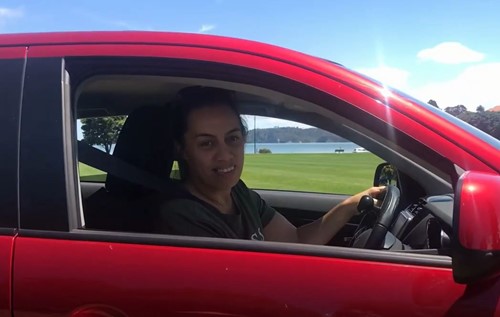
 Photo: Melanie Louden/Cerebral Palsy Society
Photo: Melanie Louden/Cerebral Palsy Society
Current financial members of the Cerebral Palsy Society can access a getDriving grant to pay for a series of specialist disabled driving lessons, preparing them to pass the Restricted Drivers’ Licence test.
“Before someone with a disability starts learning to drive, the majority need to have a driving occupational therapist perform a medical fitness-to-drive assessment to check cognitive ability, and to see what vehicle modifications they require (if any) to drive a vehicle safely. This assessment costs $1000 on average more if you live out of the main centres. Then you need a series of lessons.”
“The getDriving Program was set up to support members through the process of getting either a GP sign-off” to commence lessons or a GP referral to driving OT. Once this was complete the CP society will fund a series of driving lessons with an instructor experienced at teaching people who have a disability how to drive.”
Renata Kotua’s vision is for a better future.
“I hope to have more `CPers’ out of taxis and behind the wheel of their own cars by supporting them through the process. For me it is essential that the CP Society is relevant to everyone in Aotearoa with Cerebral Palsy and that moving forward we offer support to improve the quality of life for all our members and that we deliver in a way that is authentic, practical, sustainable and kind.”
WHAT’S NEXT FOR GRACE? HER VIEWS?
Grace has many goals and ambitions. On top of the list is getting a full driver’s licence.
“I’m only on my restricted licence. I have to get my full licence before I consider myself a confident driver.”
However, that restricted driver’s licence has given Grace a new sense of freedom. There’s no more relying on friends, family and public transport. She can travel at will!
“My continued vision for the disabled community is to bridge the gaps we face in both our communities (disabled or not). We are not a “one size fits all” society so I hope to make things accessible to all.”
